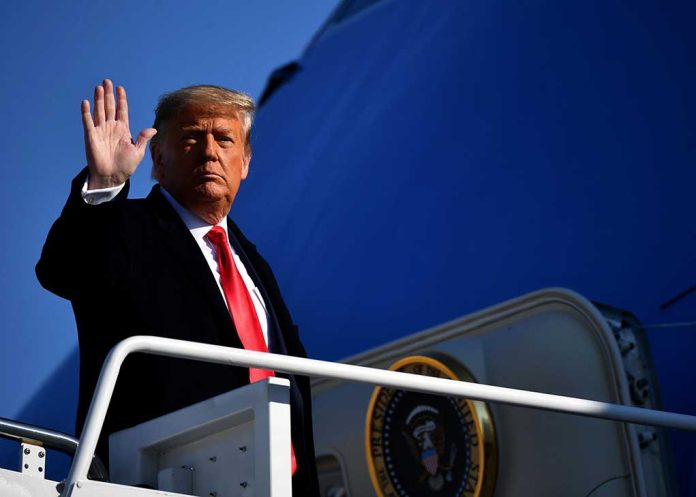
President Donald Trump has pardoned 1,500 individuals connected to the January 6th Capitol events, fulfilling a key campaign promise and sparking debate on justice and accountability.
Key Takeaways
- President Trump pardoned approximately 1,500 individuals charged in connection with the January 6, 2021, Capitol attack.
- Trump commuted sentences of Oath Keepers and Proud Boys leaders convicted of seditious conspiracy.
- Vice President JD Vance opposed pardoning those responsible for violence during the riot.
- The pardons are part of Trump’s effort to rewrite the history of the Jan. 6 attack.
- Over 1,200 people have been convicted in the riot, with around 250 convicted of assault charges.
Trump’s Swift Action on Pardons
In a move that has sent ripples through the political landscape, President Donald Trump has made good on his campaign pledge by pardoning approximately 1,500 individuals charged in connection with the January 6, 2021, Capitol events. This action, taken shortly after his inauguration, marks a significant shift in the approach to those involved in the controversial day.
The pardons extend to a wide range of participants, from those charged with minor offenses to leaders of groups like the Oath Keepers and Proud Boys who were convicted of more serious crimes, including seditious conspiracy. Trump has directed the attorney general to seek dismissal of about 450 pending Jan. 6 cases, further amplifying the impact of his decision.
A Case-by-Case Approach
While the pardons are sweeping in number, the administration has emphasized a case-by-case evaluation process. This approach aims to distinguish between non-violent protesters and those who engaged in more serious acts during the events at the Capitol.
“If they were non-violent, I think they’ve been greatly punished. They’ve suffered greatly, and in many cases, they should not have suffered.” – President Donald Trump
This statement reflects Trump’s view that many of those charged have faced disproportionate consequences for their actions. However, the administration’s stance is not without its critics, both within and outside the government.
Differing Views Within the Administration
While President Trump has been vocal in his support for those he calls “J6 hostages,” not all members of his administration share this view. Vice President JD Vance has taken a more nuanced stance, particularly regarding those who engaged in violent acts during the Capitol riot.
Vance suggests a clear distinction between peaceful protesters and those who committed violent acts, indicating that the latter “shouldn’t be pardoned.” This difference in perspective within the administration highlights the complex nature of the pardons and their potential implications.
The Impact and Criticism
The pardons have not been without controversy. Critics argue that they undermine the rule of law and send a dangerous message about accountability for actions that threatened democratic processes. Rep. Nancy Pelosi has been particularly vocal in her opposition to the pardons.
“It is shameful that the President has decided to make one of his top priorities the abandonment and betrayal of police officers who put their lives on the line to stop an attempt to subvert the peaceful transfer of power, Despite the President’s decision, we must always remember the extraordinary courage and valor of the law enforcement heroes who stood in the breach and ensured that democracy survived on that dark day.” – Rep. Nancy Pelosi
Pelosi’s statement underscores the concerns of those who view the pardons as a potential threat to democratic norms and a disservice to law enforcement officers who defended the Capitol. The debate surrounding these pardons is likely to continue, reflecting broader discussions about justice, accountability, and the interpretation of the events of January 6th, 2021.
Sources:
- Trump grants sweeping pardon of Jan. 6 defendants, including rioters who violently attacked police
- Trump pardons roughly 1,500 criminal defendants charged in the Jan. 6 Capitol attack
- Trump Pardons 1,500 Jan. 6 Defendants, Commutes 14 Sentences




